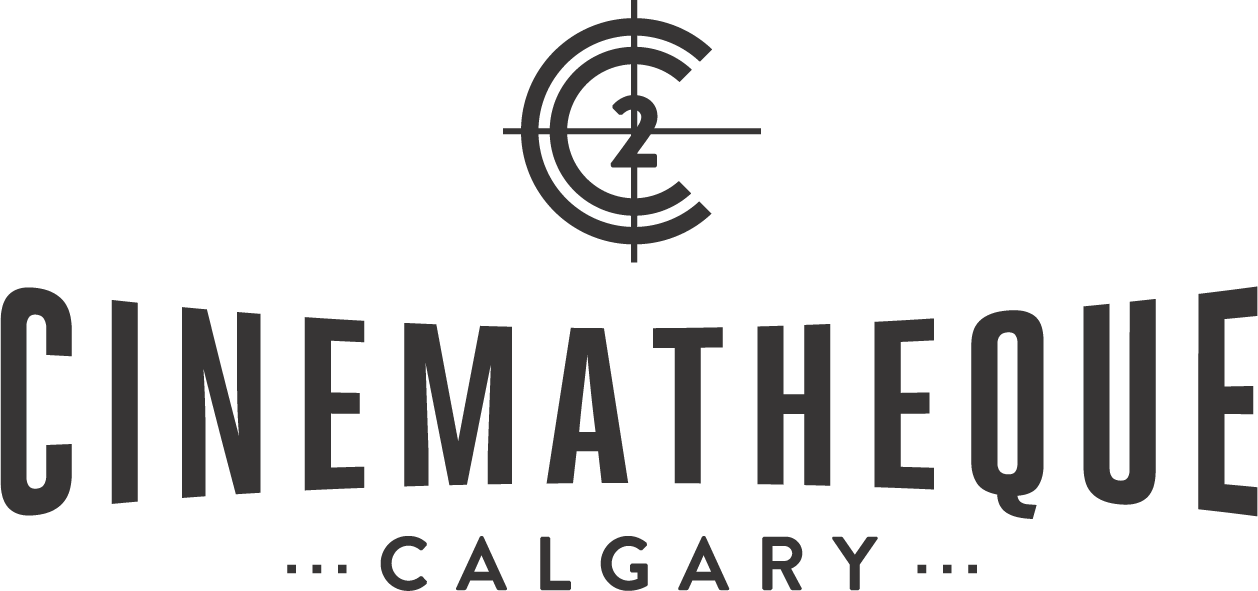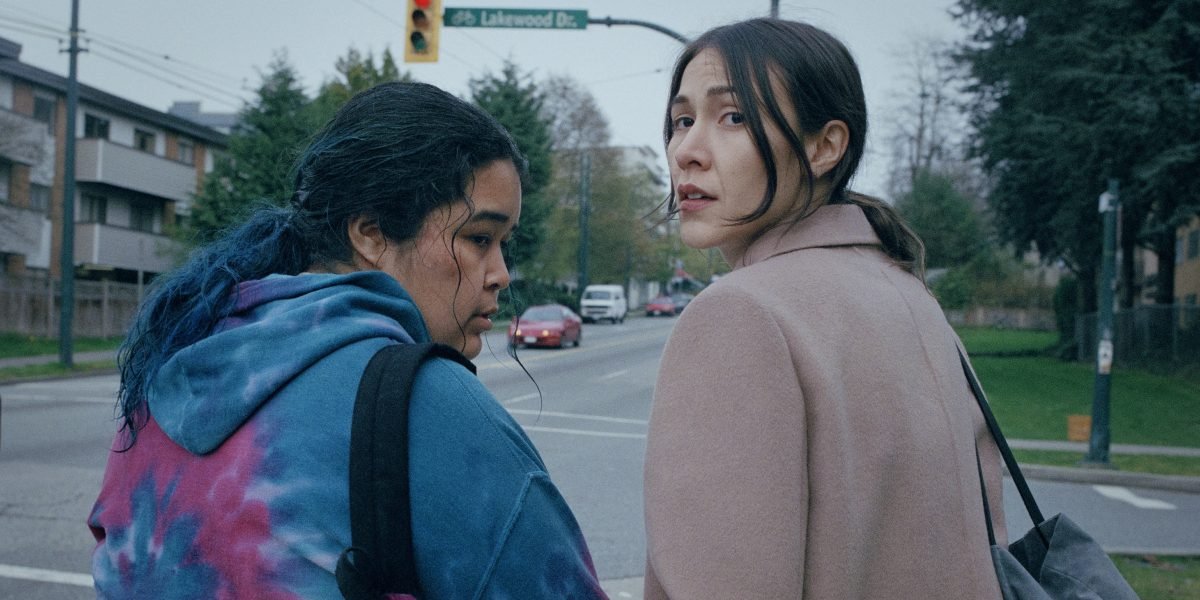Q & A with Guest Programmer, Trevor Solway
The Original Storyteller's was a series programmed by Trevor Solway, Sinakson. A Blackfoot filmmaker from Siksika Nation. I first met Trevor in journalism school at Mount Royal University. Even then I could see his incredible talent for storytelling.
At Cinematheque we are always so thrilled to be able to highlight and support our local film community, so it was amazing to be able to collaborate with Trevor.
Aside from filmmaking, Trevor’s works can be found on Amazon Prime Video, CBC TV, CBC GEM, ABC, and APTN, he is also the founder and leader of The Napi Collective, a grassroots filmmaking society based out of Siksika. Through this collective he is able to nurture the talent of future generations of Blackfoot filmmakers.
Check out a Q&A with Trevor on the series!
Art by Kehiw Eagletail.
Q: Why did you pick the three films that you picked?
Photo courtesy of Trevor Solway
A: All these films are films that I watched at a theater far away from here, in a different country, or city. Places like Toronto, or Vancouver or New Zealand, and I wanted to bring them back home to Calgary. Everywhere has its own media or film landscape. Aside from the mainstream theaters, where blockbusters play, I think our identity lives in these indie theaters like the Globe Cinema and organizations like the Calgary Cinematheque.
I thought that I would bring these films into the fabric of our film community here. So with Waru (2017) it’s a New Zealand film. It’s a place that I visited twice, and I was really blown away at the Indigenous cinema in New Zealand, and how advanced their storytelling is. They’re so masterful at bringing the old tradition of storytelling into this modern way of storytelling in filmmaking, which is something I'm still figuring out.
What I noticed is that it's the Indigenous women there that are leading that charge. And, you know, Waru was like a big testament to that. It’s eight female directors coming together to tell a story. And none of them were lacking, like, they all meet a standard, when they are saying something about this important subject. And, you know, they're all shot in one take, which is very difficult to do. And it’s just great storytelling.
With Kímmapiiyipitssini: The Meaning of Empathy (2021) it’s another film I watched where I was like, ‘alright, this film needs to be seen everywhere, as soon as possible.’ Every time I talk about films you need to watch, I talk about that film. It’s because it has changed the conversation around addiction, how it's often criminalized, that this is a choice people are making, or genetics. But it’s the lack of resources that exist in our communities and the lack of empathy really, when it comes down to it.
And I think we see our Indigenous people, we see a lot of them on the streets sometimes, and this opioid crisis is really hard. And I think the only way out of it is through empathy. I hope this film, when people watch it, gives them a little bit of that and shows the heroes and what they're doing to combat it.
I think with addiction people are not an experience, they're not what happened to them. They're not their trauma. They're not survivors, you know, because that puts them in the past. They're real people like you and me, they're human beings living in the present. And hopefully, this film sheds some light on how to change that narrative.
And then the last film, The Body Remembers When the World Broke Open (2019) is a film that I watched and right away I was like people need to watch this. I really liked the form of storytelling because it's told in a single day, it’s one shot. I'm fascinated with that medium because that's how we live day-to-day. I think when some films take place over a sprawling amount of time, and the character goes through this crazy arc. It's not really realistic. I think sometimes that sets us up for these expectations, especially when you're talking about serious stuff. And so The Body Remembers, is talking about fleeing an abusive relationship. For people who are fleeing those relationships, they don't just leave it in one try, it takes them a few tries to leave an abusive relationship. It's like a frog that gets put into a boiling hot pot of water, they jump out right away. But if you put them into a pot of water, and then you slowly turn up the heat, and it gets boiling, they adapt to it, and they stay in there. And they think that's what normal is, until they eventually die.
I think again it's masterful storytelling by Elle-Máijá Tailfeathers. She's so courageous, or brave, to hold that emotional space. And that's what we do sometimes as directors. We hold that emotional space for our actors, or our collaborators for the audience to get these points across. And she just does it in a very empathetic way. So like, you know, I guess part of this program would do with celebrating Indigenous female filmmakers, and more specifically, Elle-Máijá Tailfeathers, who is a good friend of mine, and a mentor of mine, who I look up to and admire. My producing partner and I, every time we come into a moral dilemma, when we're talking about films or talking about a situation or story, we always ask ourselves, what would Elle-Máijá do? Sometimes we actually reach out to her and ask her for help. And she doesn't hold back, sometimes we need to be put in place. She'll do that.
Kímmapiiyipitssini: The Meaning of Empathy (2021)
Q: That's awesome. And then, with the addition of The Body Remembers, all the films that you picked, were directed by women. Was that intentional? Or is that something that just happened?
A: It was a coincidence. I was just thinking what are the best films out there? What can I bring to Calgary? And then with all the films that I was thinking of just happened to be by Indigenous women. It made me kind of sit back and think with all the Indigenous filmmakers right now, directors specifically, a lot of them are women who are making these projects. Like Elle-Máijá Tailfeathers, the women from Waru, Tasha Hubbard, Zoey Hopkins, Lauretta Todd. Like there's just so many Indigenous filmmakers out there, in these big positions who happen to be women. I think with all these good films, most of them are made by women so it wasn't really hard to pick.
Waru (2017)
Q: What do you hope that people who have attended a screening in this series take away from this?
A: For myself as a filmmaker, I dabble both in documentary and narrative. Both of them are my passions. I love watching documentaries, and I love watching narrative films. I love making both of them. I was thinking about having a good mix of documentaries and narrative films. I want audiences to come in and watch these films to take in just the mastery that goes into these films. They're not just kind of straightforward Hollywood blockbuster films, there's something a bit different about them. They're either in one shot, or the doc was a vérité – so it’s just holding those moments and waiting for life to unfold in front of you as documentaries should. The Body Remembers it's shot in 16 mm film and shot in one take, or seemingly one take. And it just has two lead characters and the dialogue and the narrative is just on those two actors you know, one of which is the director Elle-Máijá Tailfeathers and the other is a first time actor.
And so I want audiences to come in to watch these films and I want them to see the skill of our Indigenous filmmakers and our raw talent. And also, these big subjects that we're trying to address, that sometimes it's not always on us to fix it, or it's not always possible to be fixed in a day. Just bringing awareness to it or just talking about it. You know, and then that is our role as filmmakers, you know, as all these things are really near and dear to my heart. If it's addiction, if it's domestic abuse, if it's poverty, you know, these are things that kind of I grew up seeing around the rez, and you know, like, life is still possible. I think what I want Indigenous audiences to take away from this is to see themselves reflected in these films and to have that compassion for themselves, that something better is possible, and you're worthy of that possibility. And hopefully, these three films kind of help somebody in some way.
The Body Remembers When the World Broke Open (2019)
Q: Last question- what's your favourite movie?
A: Boy (2010) directed by Taika Waititi.
Keep an eye out for Trevor’s POV documentary Kaatohkitopii: The Horse He Never Rode, which will air on CBC and CBC Gem late 2022. And his episodes of the docs-series Stuff The British Stole for CBC/ABC and Episode Amplify for APTN. Both episodes will air in 2023.





